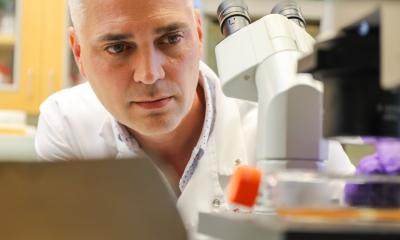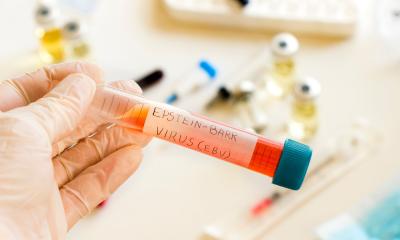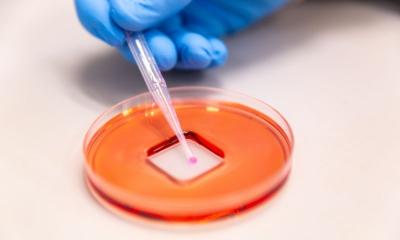© rost9 – stock.adobe.com
News • Public health
What is ‘herd immunity’ and how can it help eliminate infectious diseases?
When forest fire experts want to proactively decrease the risk of wildfires, they create small, controlled burns to limit the amount of fuel available to the fire. This reduces the fire’s ability to spread. The concept of controlling infectious disease is similar.
Experts credit vaccinations for playing a large role in the decline of communicable diseases, notably for the complete eradication of smallpox. When people receive recommended vaccines, they generally become immune and, and viruses and bacteria cannot spread from individuals into the community. Fire checked! This is the premise of herd immunity.
Amira Roess is an emerging disease epidemiologist and professor of global health in George Mason University’s College of Public Health. Roess explains what herd immunity is, how it works, and its importance in maintaining control of infectious diseases.
Measles used to kill hundreds of children a year and now because of vaccination we almost never see measles deaths among healthy, vaccinated individuals
Amira Roess
"Herd immunity is what occurs when the majority of a population, over 95% for most diseases, becomes protected against a disease. When this happens, the virus or bacteria essentially hits a dead end of people to infect and spread stops.
Immunity occurs after a harmful virus or bacteria enters the body either through infection or vaccination. After that exposure, the immune system will produce antibodies to fight against that pathogen, so that at the next encounter, the body 'remembers' and more quickly activates to produce antibodies to fight back. This is essentially how your immune system works. As more people become immune, the viruses or bacteria run out of people to infect and sizzles out. For every person who is immunized, it becomes that much more difficult for the disease to cause additional sickness.
Vaccines have been developed to kick-start that active immunity in a safer proactive way rather than risk severe illness from infection. For example, measles used to kill hundreds of children a year and now because of vaccination we almost never see measles deaths among healthy, vaccinated individuals.
Over the last several decades, vaccines have been used to proactively protect people from infectious diseases. Vaccines work by introducing a weakened or inactive version of the disease-causing agent to the body to trigger active immunity. Vaccines have been proven to be safe and effective. Research shows that any side effects from vaccines are minimal and far less harmful, and short-lived, compared to actually having the disease."
If others are vaccinated, why should I have to?
"In order to make herd immunity work, everyone who is able to be vaccinated, absolutely should do so. Disease causing viruses and bacteria require a non-immune host to spread and survive. If infections are allowed to circulate unchecked, we run the risk of mutations that render vaccines ineffective.
Herd immunity through vaccination prevents unnecessary disease spread and deaths. If we rely on attempts to reach herd immunity through exposing people to a virus, it results in unnecessary deaths. There are a lot of people who are immunocompromised, and their bodies can’t fight back if they get infected. They can’t produce antibodies that are strong enough to fight the pathogens. These individuals rely on the rest of society getting vaccinated. Opposition to vaccination is contributing to outbreaks, which are sickening and killing mainly unvaccinated individuals.
Many infectious diseases are largely preventable. Why risk it when vaccine interventions are available? This also applies to diseases like measles, mumps, and rubella, which have almost been forgotten today. They used to kill many people, especially in children, before their vaccines were created and herd immunity was achieved."
Source: George Mason University
04.10.2025











